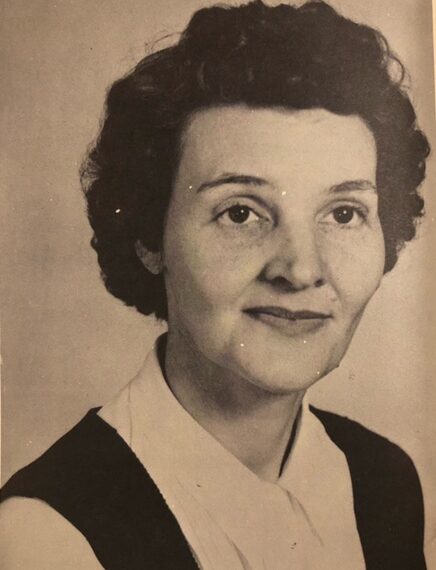Table of Contents
The book is called Cat Claws and Tree Bark, and readers are lucky to have it. The author, Virginia Casey Turner, didn’t want it published.
Born January 14, 1912, Virginia Casey was the daughter of Susie and Walter Casey of Lancaster in Garrard County, Kentucky. Although a precocious student in all subjects, including art, it was her gift for writing that first gained the notice of her teachers at Buckeye High School. As a member of the 4-H Club, she won numerous prizes for her expository and critical essays on the subjects of science, health and leadership. Her outstanding work soon got the attention of Kentucky Governor Sampson who made her a Kentucky Colonel, one of the youngest in the state.
Virginia was just sixteen when she won a five-hundred prize in an international essay contest on Les Miserables, sponsored by the Universal Picture Corporation in California. Still sixteen, she earned a scholarship in an essay contest sponsored by the Louisville Chamber of Commerce. In 1933 she graduated from Berea College where as a charter member of Berea College Writers, she was in charge of the literary section of the college paper. Up to this point her writing seemed to lean toward nonfiction, until she took an independent study in creative writing.
In 1936, while taking classes for an advanced degree at the University of Kentucky, she saw four of her poems appear in A Brief Anthology of Kentucky Poetry, compiled by the well-known author of Tip Sams of Kentucky, J.T.C. “Cotton” Noe. She was now a published poet.
Like her famous contemporary Jesse Stuart, Virginia recognized the compatibility of the two professions, writing and teaching. Following graduate school she embarked on a long and rewarding career as a high school English teacher, starting at her alma mater, Buckeye High School. After two years she left for a position at Maytown High School where she taught for fourteen years. She taught the following six years at Prestonsburg High School, and briefly at Pikeville High School before retiring.
She was obviously a demanding teacher, one who dared her students to be tough in the face of adversity. She raises her voice to high pitch in these lines from “I Scream–Running”:
I run screaming... Human pride demands I set a good example. And my students-- Was it not I who told them Of the Spartan mother's Saying, "Come home bearing your shield or on it."? Virginia married a teacher who, like her, was a graduate of Berea College. Virgil O. Turner from Lexington, Kentucky, taught at Pikeville College. They had one son, Jack Justin, who taught at Middle Tennessee University at Murfreesboro. Although her poetry appeared in various periodicals, including Approaches, Twigs, American Farmer, Ladies' Home Journal, and Contemporary Kentucky Poetry, Turner was not a prolific poet. Reluctant to expose her emotions and frustrations in print, she was frequently her own audience. The pain and resignation in "Sylvan Sanctuary" was not intended for public viewing.
I am tired of men and women, Bored alike by sun and rain I am even tired of beauty, Tired of grief and tired of gain.
The reader is relieved to find the mercurial poet singing during a storm in “Bad Night”:
The thunder stones rumble and fall The lightning jags again. Bad night outside? No matter. Let's sing awhile.
Turner was a poet of many themes and moods. Whether or not she knew it, she was following the advice of Rilke in Letters to a Young Poet: “Describe your sorrows and desires, your passing thoughts, and your faith in some kind of beauty…describe it with sincerity and use it to express the things that surround you, the images of your dreams…”
In “I Have Not Made a Poem to My Son,” she makes amends for the one exception.
I have not made a poem to my son. I have made poems to flowers, And hours and powers--that--be To ranging sundry odds and ends That moveth me. And verse to this and that Even my cat I shall not make a poem to my son He is one... My best
Turner was near the end of her life when the staff of the Appalachian Studies Center of Pikeville College asked permission to publish a collection of her poems. She balked at the idea. Aside from her sensitivity, she refused on the grounds that several of the poems needed revision and others were unfinished. At last convinced that her life’s work, flawed or not, deserved a wider audience, she consented to the book’s publication.
Virginia Casey Turner was spared the embarrassment of seeing her book in print. She died June 22, 1970. Cat Claws and Tree Bark was published in 1972. In his introduction, Dr. Hollis Summers tells us “This book is to be read, not as a memorial; it is an assertion, a speaking out…it is a bright telling, a celebration.”
In the poem “A Bag of Tools,” we hear the blended voices of both poet and teacher:
Each is given a bag of tools A shapeless mass and book of rules And each must make before life is flown A stumbling block or a stepping stone.
Long ago, a young writer from Garrard County, Kentucky, chose to build a stepping stone. Cat Claws and Tree Bark has been placed generously in our path.
Contributor – Gayle Compton
SYLVAN SANCTUARY
I am tired of men and women, Bored alike by sun and rain. I am even tired of beauty, Tired of grief and tired of gain. I am wearied of ambition, Bored by books and sick of good, Disillusioned by all duty, Liking nothing that I should. I must go off to the mountains, Hide my hate behind a tree, Leave my hands in mountain water, In quiet wash the soul of me. From A Brief Anthology of Kentucky Poetry
WINTER FAITH
Without embellishment. No grace of growing bough. No blossoms now. No tender leaf. Bright birds are grown and flown. This faith stands stark against a winter sky, gone dark. Is now--all sap interior drawn--or gone, braced to be strong, not nice; prescient of storm and ice. Harsh-shape, wind-honed, balanced to hold on roots gone deep in dark and cold gripped fast to nether stone, unknown. From Contemporary Kentucky Poetry 1967
FEBRUARY
This is a dreamy, Mona Lisa month A grey not telling time. Reticent, remote, dull, indifferent, Lost in thought. Ah, I have come upon your secret, February, I know because it is the same time as mine. These are the first days of your knowing That the seed is stirring, growing. Life will grow now Given time Though there is no sign for others Your smug, sleepy, smiling way Told it all to me today. From Cat Claws and Tree Bark
CONVERSION
We, two unbelieving dreamers, Walked a somber, sordid way, Having naught and hoping nothing, Hating scorning those who loved the day. Fearing bread, we had gone hungry, Jailors, we ourselves enslaved. Proud and powerful persecutors, Hounders of a faith we craved. We, two self-deceiving dreamers Lost that autumn in a wood Like our father, Saul of Tarsus, Found conviction where we stood. Words we heard but saw no speaker, Light from Heaven wrapped us round, Velvet wind and brown leaf fragrance Mingled in the truth we found. Feet go backward to go forward; Blinded eyes alone can see; Bread that's bitterest is the sweetest; Fettered hearts alone are free. From Cat Claws and Tree Bark
BESIDE A COFFIN
I stand above you bound with grief and full of wonder At splendor of pure peace upon your quiet face. I stand in heart-deep pain and full of broken questions; You lie serene each answer known within its ordered place. You, yesterday, as I today, asked futile questions; Tomorrow, I, as you today, may know the answers well. From A Brief Anthology of Kentucky Poetry 1936
ANODYNE
Pain comes age comes and Death But Darling yet I tell you--Love is all the cloak you need, the only shelter and the only anodyne-- From Cat Claws and Tree Bark





